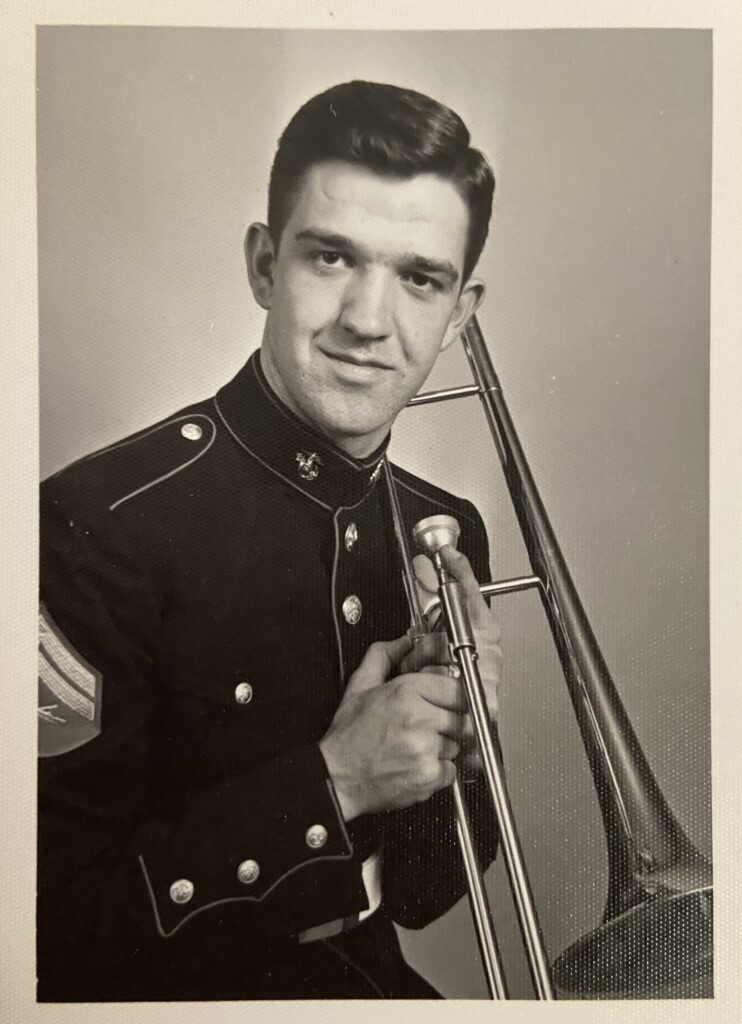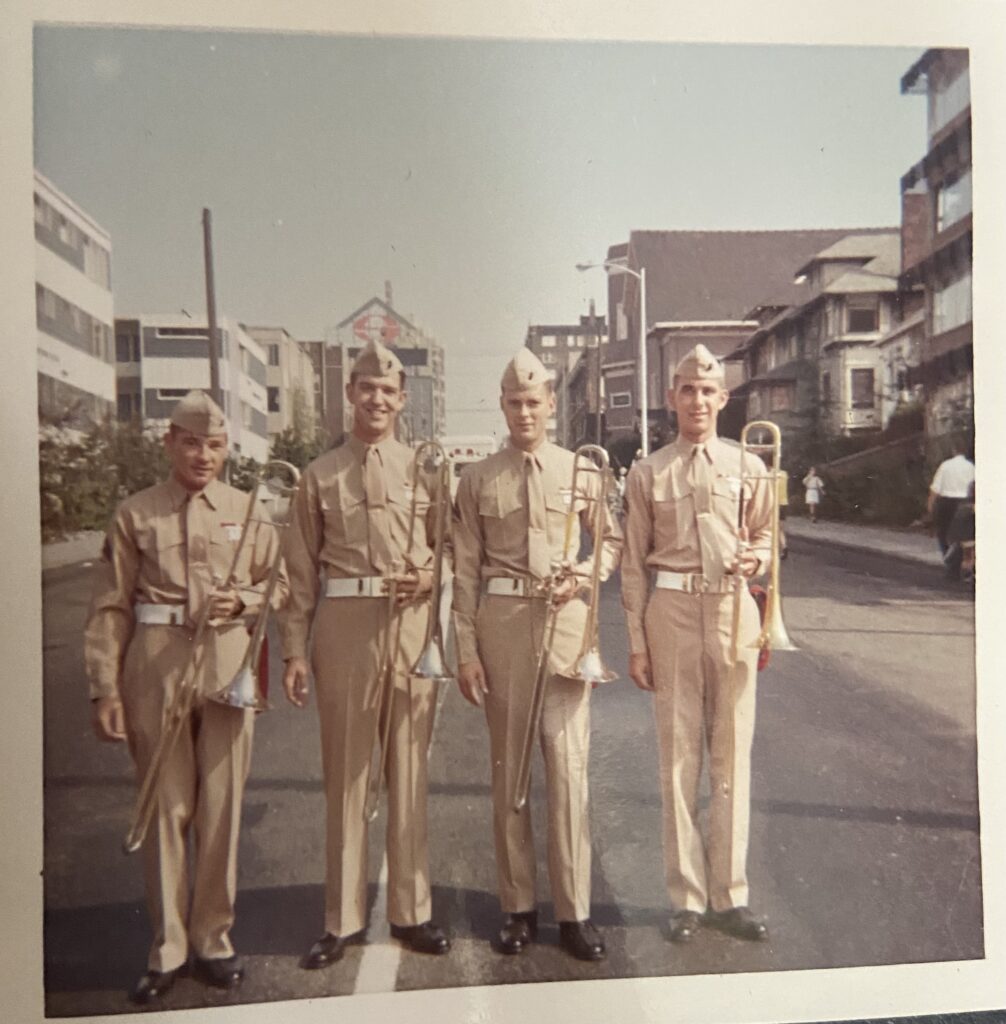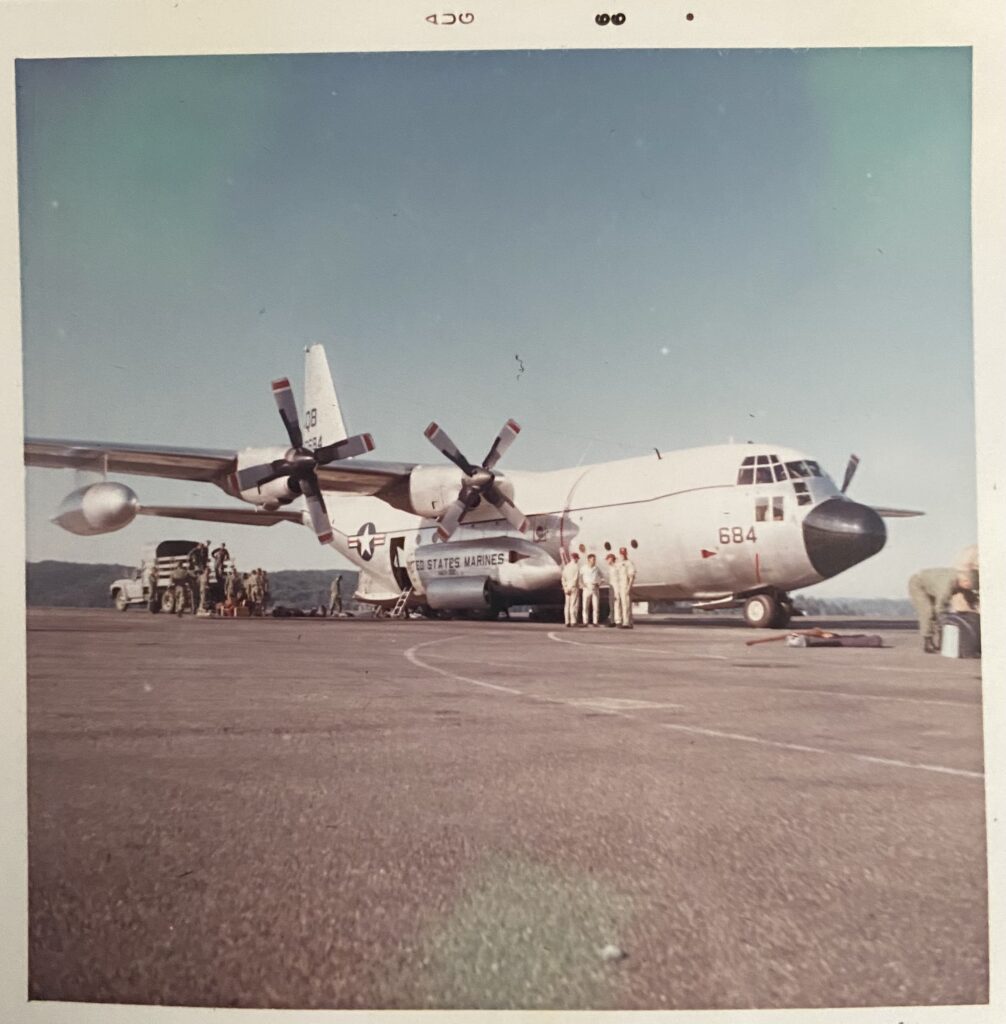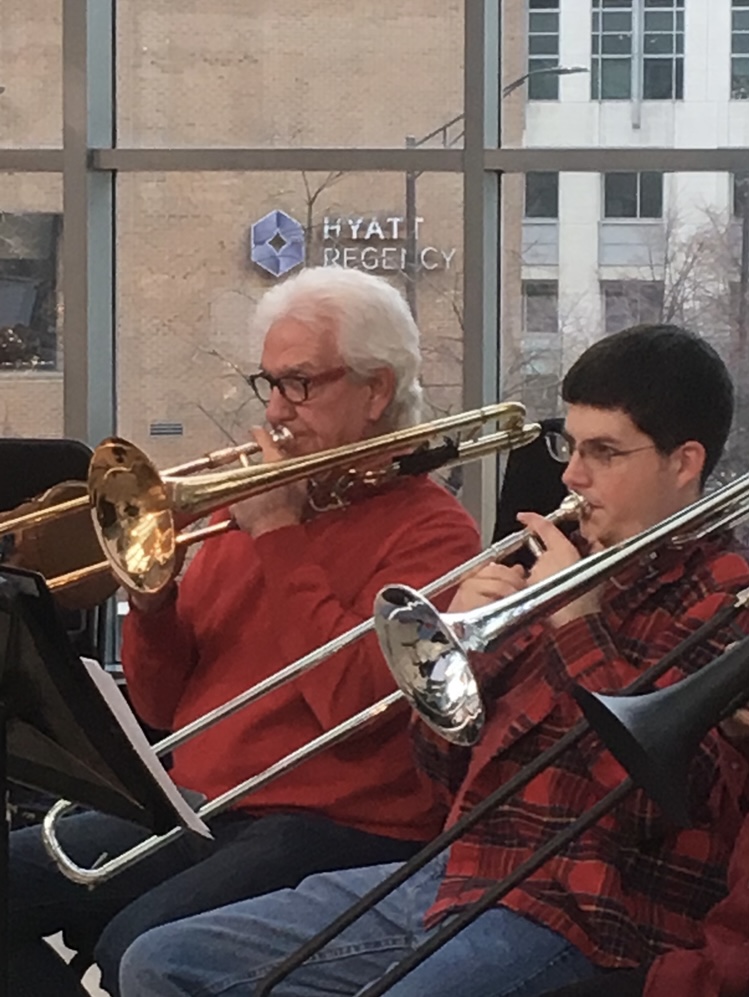The Music Man – Composing and Playing for the Marine Corp Band
by Blog Writers

By Grant Boyer
Countless people have joined the armed forces and taken part in defending the nation and its ideals on land, in the air, and on sea. They have taken part in attacks, flown dangerous missions, and patrolled waters ̶ however, not as many have had music as their primary mission.
 Doug Finke, a trombonist of 23, was drafted in 1965 and remained in service until 1967. He knew from the beginning that he wanted to play music while in the service, and chose to pursue the Marine Corps’ music program. When he finally had the chance to try out following boot camp, he was promptly given a trombone to use and music to play. At the end of the difficult audition, they said, “okay, you’re in.”
Doug Finke, a trombonist of 23, was drafted in 1965 and remained in service until 1967. He knew from the beginning that he wanted to play music while in the service, and chose to pursue the Marine Corps’ music program. When he finally had the chance to try out following boot camp, he was promptly given a trombone to use and music to play. At the end of the difficult audition, they said, “okay, you’re in.”
“What does that mean?” Doug asked, not yet understanding the scope and sudden nature of what they said.
“You’ve been accepted into the Marine Corps band program, and you’ll be given an assignment,” they replied.
“So, that was cool. It was stressful, but it was cool,” Doug said of his experience.
He joined the 3rd Marine Airwing Band, stationed at El Toro, California. Every base had its own band, and California alone had five or six bands. While in the field band, Doug started writing arrangements for it, mostly show tunes in a military style that used military band instrumentation. His arrangements included “Strike up the Band” and other Gershwin tunes, or simply music that everybody at the time would know.
“A warrant officer was in charge of the band, and gunnery sergeants or master sergeants would do the field directing. I had discussions with them about playing better music, and they said it was more about the precision of marching. I said, ‘I don’t think so. I think that when people hear really good music, they don’t know why but they like it better.’ So they let me write, we did these shows. And to my gratification, the directors of Army, Navy, and Air Force bands came to our director and said, ‘where did you get those arrangements?’” Doug explained.
It should be noted that he had to hand-write all of his music, which required very good handwriting. Doug took pride in his ability to write clear and accurate music, one of the elements of his arrangements’ success.

His handwriting was the reason he was eventually invited to join “The President’s Own” United States Marine Band as the director’s copyist. Within the last three years, Doug found out that he would have been working with Sammy Nestico, a very famous composer and arranger who was directing the “President’s Own” Marine Band at the time. Nestico had previously directed and arranged for the United States Air Force Band, in which he created the famous Airmen of Note jazz ensemble. Nestico is also well known for writing arrangements for the Count Basie Orchestra and is also a trombonist.
Doug ended up turning down the opportunity, “which is another story,” he says. At the time he was invited, he was married and had a child and wanted to be present for his family rather than constantly traveling with the band. On occasion, he’s pondered how his life would have been different but doesn’t regret the choice he made.
Life in general in the Marine Corps was busy and direct, with no moment of the day being wasted.
 “At 7 or 7:30 in the morning, we would march in uniform from the barracks to the main flagpole on the base to raise the colors. We would play while marching down the streets, and when we arrived at headquarters, we would play a bugle call to attention and “The Star-Spangled Banner”; and then we would march back, playing marches again.
“At 7 or 7:30 in the morning, we would march in uniform from the barracks to the main flagpole on the base to raise the colors. We would play while marching down the streets, and when we arrived at headquarters, we would play a bugle call to attention and “The Star-Spangled Banner”; and then we would march back, playing marches again.
The rest of the day was made up of two different things — we would either rehearse as a concert or jazz band, or we would go out into the public to play in a parade or play a concert. In ’66 and ’67, we were off base playing in something nearly every day of the year. One year, we went 178 days without any time off. All of that was part of a goodwill campaign to the public, to give them a good feeling about being in the Vietnam war, that it was OK. The idea was to make them feel good about ‘doing what we had to do’,” Doug explained.
Sometimes playing took the band to different parts of the country, such as Salt Lake City to play in a roughly five-mile-long parade, or an annual military-centric show in Seattle. Doug’s arrangements were also played at the Seattle show, which helped them garner attention. The band’s mode of air transport was always a cargo C-130 with no seats of any kind (“typical Marine Corps”, says Doug), requiring the band members to simply find a spot on the floor and get into a good conversation to pass the time.
Back to the Vietnam War, Doug got orders to go to Vietnam twice. Bands went to Vietnam too and, of course, band members would fight as well if necessary. This was obviously worrisome to him given that he had a daughter by this point, but his commanding officer said, “don’t worry about it, I’m getting your orders changed.”

Doug and Grant
“I was principal trombone player for those two years [with the band] and he didn’t want to lose me, so I’m grateful for that.”
When asked what the proudest moment he had in the band was, Doug couldn’t name just one thing, but remembered the excellence of the band’s performance, time and again. “The trombone section was amazing — we were proud, we were loud, and we were in lock step. The formation was always perfect or near perfect. That sort of performance made me proud.”
His time in the Marines and the band taught him discipline in life, helping him to live on a schedule, “and to always do the best job you can. Make commitments, keep commitments, keep your shoes shined, and a crease in your pants.”
Grant received his creative writing degree from the University of Indianapolis in 2021, where he also played the trombone in several bands while attending. Grant has since become increasingly interested in writing the personal stories of friends and family. Grant’s grandfather Doug was a mentor and positive influence through his school years as a trombonist. They have played together in a long list of band performances, sharing the love for the trombone.






